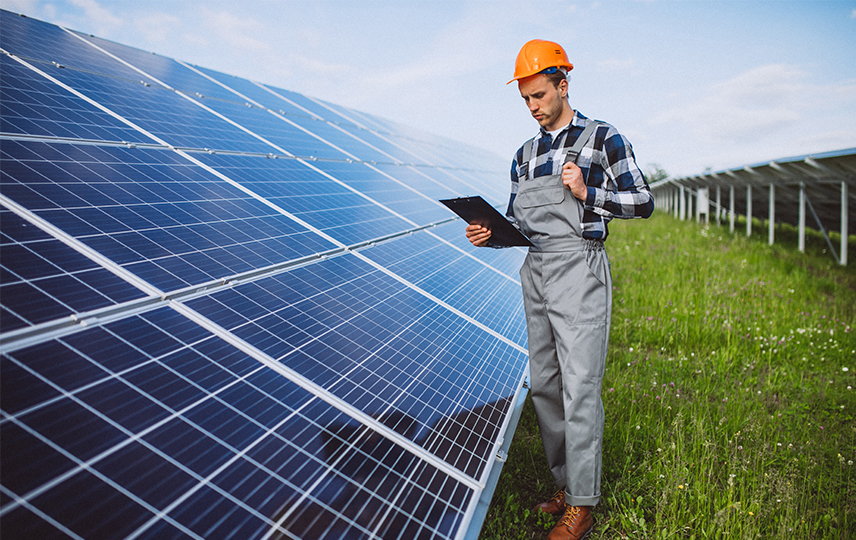How Do Solar Panels Work?


Sunlight is an inexhaustible source of energy. Our ability to harness this energy has improved to the point that we can now produce solar energy from the sun’s heat and light when we combine solar cells, which together form solar panels.
A solar panel converts the light from the sun into electricity. You can then export this electricity to the grid when you don’t need it. By installing solar panels on your roof, DC (Direct Current) electricity can be generated. The DC electricity generated by your solar panels is then fed into an inverter, which transforms the DC electricity into AC power (Alternating Current).
The great thing is, Australia enjoys some of the sunniest weather in the world, which helps it harness the sun’s power during these high seasons effortlessly. Hence, if you are an Australian seeking to know how solar panels work, we have explained it in the following 5-step guide:
- The solar panels you use are made of silicon photovoltaic (PV) cells. By absorbing the sunlight, your solar panels produce electricity through the Photovoltaic Effect. The electricity generated by your panels is known as Direct Current (DC) electricity, and it is not appropriate for usage by your equipment in your house. Instead, your central inverter receives the DC energy (or micro inverter, depending on your system setup).
- From DC electricity, your inverter can produce Alternating Current (AC) electricity, which you can use in your home. After that, the AC electricity is delivered to your switchboard.
- With a switchboard, you can send useful AC electricity to all your appliances in the house. Your switchboard will always use solar energy first, only using additional grid energy when your solar production doesn’t meet your needs.
- Households with solar power are required to install a bidirectional meter (utility meter), which the electricity retailer will install for you. Using bidirectional meters, you can record both the amount of electricity drawn into and exported from the home. It is called net-metering.
- Any unused solar energy is then fed back into the grid. Solar power exported back to the grid will earn you a credit on your electricity bill called a feed-in tariff (FiT). Your future electricity bills will include the electricity you purchase from the grid, as well as credits for electricity generated by the solar power system that you do not use.
With solar power, you don’t have to manually turn it on every morning, or turn it off at night – it will turn itself on and off as needed. Also, you don’t have to switch between solar power and the grid, since your solar system will decide when it makes more sense to do so depending on how much energy your home consumes. In fact, solar systems require very little maintenance (since they are mechanical) which means that you won’t even notice it has been installed. Also, a good quality solar power system will last a long time.
If you have a properly functioning solar inverter (usually installed in your garage or easily accessible), it can tell you how much electricity is being produced at a specific moment in time or cumulatively since it turned on. Many quality inverters feature online monitoring and wireless connectivity.
Does Weather Affect Solar Energy?
The weather has an impact on the amount of electricity that solar systems produce, but not how you might expect.
Clear, sunny days are ideal for generating solar energy. Solar panels are, however, more efficient at colder temperatures than most electronics. In this way, the panel can produce more electricity in the same amount of time. If the temperature rises, the panel will generate less voltage and will produce less electricity.
However, solar panels do not necessarily produce more electricity in the winter as opposed to the summer, despite being more efficient in cold temperatures. During the warmer summer months, the weather tends to be sunnier. There is less chance of clouds, and the sun is out during more of the day. So even though your panels may be less efficient in warm weather, you’ll probably still be able to generate more electricity in summer.
If this seems complex, no worries. Life Solar Consultants are happy to walk you through how solar power works over the phone, via email, or during a no-obligation visit. So, if you have any questions or queries, do not hesitate to call us on 1300 425 593.